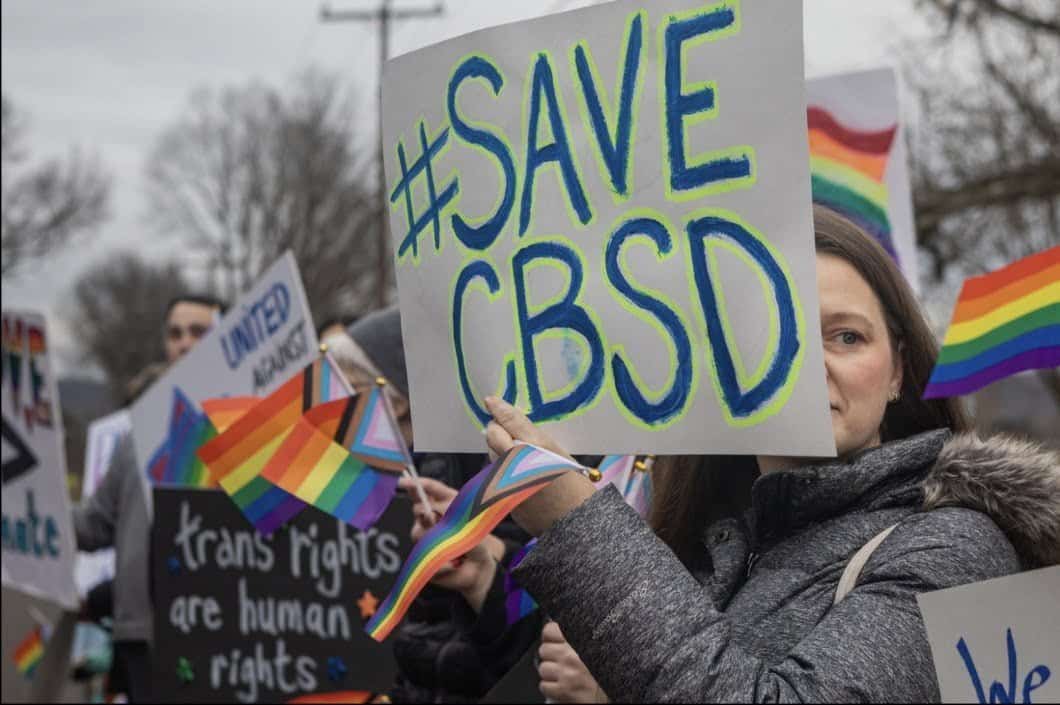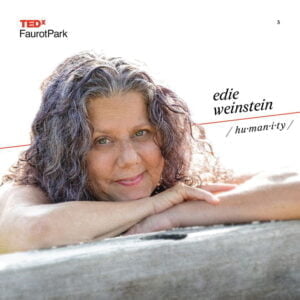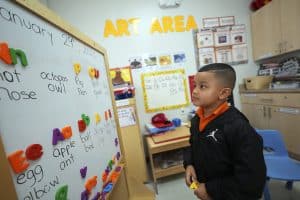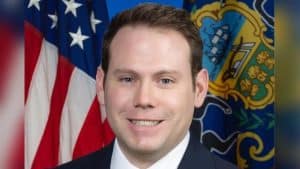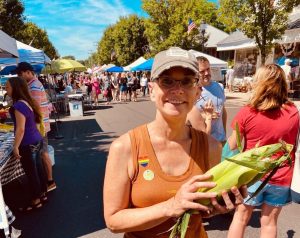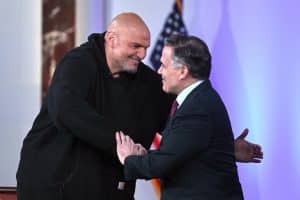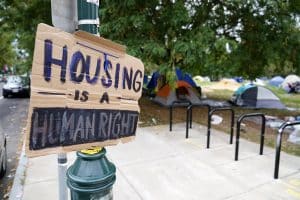Education is an essential aspect of child development and an important component of becoming an informed and responsible adult. Each child deserves a safe and inclusive learning environment. Sadly, that is not the case in many communities including those in our region. Two powerhouse changemakers are Kate Nazemi and Kitty Semisch whose organization Advocates for Inclusive Education stands with students, and the teachers who want to provide that type of environment for them.
Edie Wienstein: What did you each learn about world events in your youth?
Kitty: To give you a bit of background, I am 64 years old and was in the school system in the 1960s and 70s in the time of the Viet Nam War, the assassinations of JFK, RFK, MLK, and Malcolm X. I remember learning about those world changing events. In retrospect, it was likely that what was behind the murders and the war were kept under cover. Not so different from what we are experiencing all these years later. I learned that the adults in my orbit were often wrong, but never in doubt. My parents disagreed with one another over Civil Rights (my father was a Goldwater Republican, my mother a progressive Dem) and both of them took a dim view of hippies, anti-war protesters, MLK (who they saw as a divisive figure whose presence spurred riots), and many other issues. I learned that when I asked them about their beliefs, I would often get responses that sounded illogical or contradictory. So, I learned to listen to all the sides and think for myself.
Kate: I grew up in the 1980/90s and, thanks to my family and my early love of research, I was keenly aware of the world around me. My mom talked to me about race and civil rights. We volunteered at women’s shelters, marched for gun reform, women’s rights, and advocated for quality mental health services. My dad shared his passion for international relations and took me to several Republican party conventions. My grammy was a huge feminist and a founding member of the League of Women Voters. I had subscriptions to Common Cause and Foreign Affairs by the age of 12. I ask A LOT of questions, love to listen, and, like Kitty, enjoy examining many diverse perspectives before arriving at one myself.
Edie: How did you each come by your social justice proclivities?
Kitty: It seemed obvious that in a democracy, equity ought to be obtained. Why wasn’t it? When I was little, I couldn’t understand why some people didn’t have enough to live on, why there were riots in my home town (Rochester NY), why there were violent clashes with police…
Kate: I don’t really see this through the social justice lens. What I know is that I grew up curious and aware because I lived in a safe environment, both at home and at school, where we were free to read books of our own choosing, encouraged to ask difficult questions, and learned to examine all sides of an issue using factual resources. We were expected and taught to understand a wide array of complicated ideas and viewpoints which gave us the life skills necessary to navigate complex situations. We also learned that anything that devalues human beings only serves to discriminate. Unfortunately, because of the fears and ignorance of a few, I can’t say this will hold true for current CBSD students.
Edie: What motivated you to speak up about the educational system in our community (Central Bucks School District)?
Kitty: I retired from teaching in June of 2021. I taught through the pandemic, and it was miserable—and then I saw that rather than gratitude toward teachers for all they had done, all the risks they took, the superhuman efforts they made to keep the kids engaged and learning, the diminished joy in the job, our community turned on teachers and blamed them for learning loss and school closures. Teachers had no power over schools opening or closing; they had to go to work even when their own health and the health of their families were at risk. But the community blamed teachers for it all. I could see that this blame and fear of the worst fueled an angry, dangerous backlash. Because I had retired, I could speak for education in Central Bucks, which current teachers cannot.
Kate: I am a parent of two kids in the Central Bucks School District. Covid was the first time I paid any mind to the school board. I will never understand how the board majority at that time willfully defied most medical experts and the consensus of public health recommendations. They showed their willingness to reject norms and standards in favor of personal bias and political agenda. In the case of Covid, they did so at the expense of both the physical and mental well-being of so many in our community.
Here is their formula:
1. Intimidate/belittle/ignore/blame experts in the field.
2. Reject standards to fit personal bias and agenda.
3. Claim pedagogy is not law, in fact, it’s suspicious, so we don’t have to follow.
4. “Save the day” with the whims of the CB Board majority way.
With this formula, we’ve gone from health and safety “policy” to policies that restrict access to books, materials, classroom décor, speech, and thinking.
Edie: Please share the mission and vision of Advocates for Inclusive Education.
Kate & Kitty: All children deserve safe, welcoming schools that support and challenge them to develop their unique potential. The great majority of parents, teachers and students agree—education should expand what students learn, not limit it. This includes celebrating the diversity that exists in our learning communities. Gender, race, socio-economic status, ability, language, religion, sexual orientation and all of the combinations of those aspects of our identity are our strength.
Unfortunately, we are at a place where some elected leaders ignore their constituents and de-professionalize the teachers they hire. Instead, there is a focus on one-sided, divisive, restrictive policies that limit children’s potential, hurt staff morale, anger parents, and seek to weaken public education.
We reject the notion that our schools ought to indoctrinate students into a narrow view of history. We embrace telling kids the truth about our nation, about our history, and about our relationships and responsibilities to one another. Only by coming together as a community and telling the whole truth can we hope to prepare our kids for the future they deserve.
What are some of the most pressing issues that are on the table now?
Kate & Kitty: Policy 109: the policy governing library books. Six school board members have decided that they can remove books from our school libraries unilaterally, without regard to the books’ literary merit or their potential to engage kids or inform them of the world around them. We have people in our community counting swear words in books and demanding they be eliminated from the library based on those tallies. A book is more than a list of words. Our high school students are ready for real literature. It’s not the privilege of one set of parents or board members to decide what books other people’s kids may read. They are overstepping their limits and depriving families of the liberty to decide for themselves.
Policy 321: A number of people in our community have determined, without evidence, that teachers in our district are guilty of “indoctrination” and to that end, 6 school board members have enacted a policy to restrict freedom of speech in the classroom. We argued that the policy was so vague as to lead to confusion and impossibility of enforcement; that it would chill teachers’ and students’ speech and inquiry; that it was insulting to teachers; and that it would encourage spying and tattling on our professionals. Very soon after it was enacted, every one of these objections came to life in a vivid demonstration of catastrophic public relations and harm to kids and professional staff. A librarian at one of our high schools was directed to remove a quote by Holocaust survivor Elie Wiesel. Our principals and administrators don’t know what the policy means; someone ratted out the well-intended and well-within-his-proper-role librarian; that person is now under attack at school board meetings with public accusations from angry, ill-informed parents; teachers are taking down ALL the posters and quotes for fear of similar targeting; nobody feels safe in their classrooms. “Don’t ask, don’t tell” is a disastrous ethic for academic inquiry.
Policy 011: The latest policy disaster. Six school board members appear to favor stripping language from their code of ethics that would encourage them to advocate for public schools. This tone-deaf move sounds like a headline from The Onion: “School Board tires of half measures and votes to abandon public schools entirely.” Their reasoning was that what they do already supports CB, so why do we need to make explicit our commitment to public education? They tidily ignore the fact that everything they’re doing in fact hacks at the root of community support for our schools and that one day, other folks will sit in those seats and their job is to create policy that will put CB in good standing now and in the future, no matter who is elected to the board.
Supporting public schools seems a pretty low bar for our school board members, but it is a bar they choose not to clear.
On the subject of book banning, I smile at the irony when I take note that when books are banned, they soar to the top of the best seller lists and yet I know it is a dangerous trend. Can you speak about book banning?
Kate & Kitty: Nothing about book banning makes me smile. It’s a reaction out of fear and it has grave consequences to kids’ freedom of thought.
Some in our community have become persuaded that there is evil intent behind the selection of books in our libraries. This is untrue, but the fear is real. Yes, there are books with explicit sexuality in them—in our high schools. According to the CDC, 55% of teens are sexually active before their 18th birthdays. Even if our students in CB engage in sex far less than the national average, certainly we can agree that 16-, 17-, and 18-year-olds are interested in the topic and wish to learn more. We know that books are the safest place for kids to find out about sex. We know that our libraries exist to help kids understand the whole world, not just the one we wished they lived in.
Any family in this district can easily and without trouble place any book on a “restricted” list for their own child—so the removal of books from our libraries is all about other people’s freedoms, not one’s own. It’s a flagrant abridgement of families’ and students’ rights.
Of the five books now under consideration for removal, not one has been placed on restriction by any family. The people who are advocating for these books’ removal have not even taken them out of their own children’s hands.
Furthermore, the board and our administration have created a monster of a policy that is opaque, capricious, and calculated to fan the flames of discord rather than dampen them—but they are not even sticking to their brand new (flawed) policy. Instead, they’re inventing secret ways for the board and administrators to ban books absent parental objections.
They make bad laws and then ignore them.
How do certain members of the board justify taking down the safeguards of rainbow flags that are meant to provide support and even a small sense of assurance to LGBTQ+ students?
Kate & Kitty: Only they can answer this.
There is a video I saw years ago that portrayed graphically what the world would be like if being Gay was the norm and being straight was the aberration. It had the same horrendous result as it does for LBGTQ+ young people. I wonder what would happen if the school board members were willing to watch it?
Kate & Kitty: We don’t know either.
Did your organization have a comment about the removal of the Elie Wiesel quote from the CB South library?
Kate & Kitty: Yes. We wrote an OpED that was published in the Philadelphia Inquirer on Thursday, February 2.
How can we as citizens, whether or not we have children in the district make our voices heard?
Kate & Kitty:
– Subscribe to our newsletter at https://advocatesforinclusiveeducation.org/
– Go to school board meetings or hear them live-streamed.
– Speak during public comment at school board and Policy and Curriculum meetings once per month.
– Write letters to school board members telling them your views.
– Enlist your neighbors to do the same.
– VOTE!!!!!! And enlist neighbors to do the same.
What kind of world do you envision?
Kate & Kitty: We envision a world where ALL the community’s children come together in vibrant, challenging, supportive classrooms with expert teachers who lead the way to true education: where kids learn to approach the world with wonder, curiosity, and courage, to ask questions and read great books and create a democratic, equitable, flourishing society.
Who or what gives you hope that positive change is possible?
Kate & Kitty: Fannie Lou Hamer and all the other civil rights icons who endured so much and risked even more to make us all freer.
